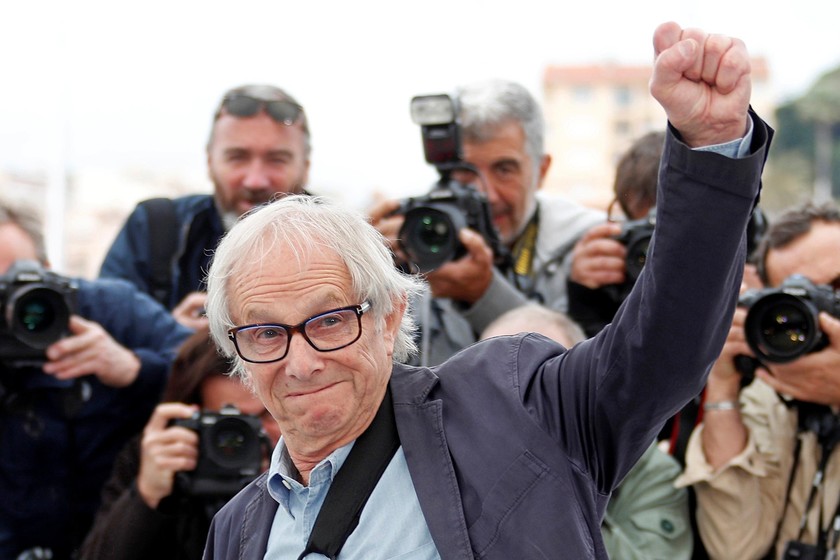With the ongoing superhero feud shaping up to become hotter than Endgame, British director Ken Loach has teamed up with Martin Scorsese and Francis Ford Coppola to form the filmmaker Justice League – film auteurs battling for film for art’s sake. Loach recently compared superhero flicks to “hamburgers”, stressing the dependable nature of the commercial hits. Similar in his condemnation of the genre, at the premiere for his latest gangster flick The Irishman, Scorsese asserted that Marvel movies are “not cinema”, reducing the blockbusters to no more than “theme park” rides. It could be argued Coppola dealt the heaviest blow, calling the box-office breakers “despicable”. Clearly, these auteurs are protesting against predictable cheap thrills which are threatening the more arthouse motion pictures. However, superfans of the genre have come to the front line of defence – James Gunn, Joss Whedon, Kevin Smith and Taika Waititi all courageously pitching into what has become Hollywood: Civil War.
”Loach recently compared superhero flicks to ‘hamburgers”’
The history of so-called “theme park ride” features can be traced back to Scorsese’s own cinematic epoch. Peter Biskind’s 1998 book, Easy Riders, Raging Bulls presents Scorsese as one of the leading directors behind Hollywood’s “New-Age”, a period commencing around 1968, with the curtain falling after the rise of the blockbuster in the late 70s with Jaws and Star Wars. Perhaps due to this, during the 1970s Loach, Scorsese and Coppola felt some resentment towards superhero movies, as Superman flew back onto the scene with a big box-office smash in 1978. However, had it not been for the money that these features brought in for the major studios, many of the independent pictures of the era might not have been made. Likewise, if we cast aside Marvel and DC’s cinematic contributions to Hollywood which have paved the way for stunning new visual effects, Scorsese’s The Irishman might not ever have come to fruition.

What about the origin story behind the superhero film itself? Since Flash Gordon of the 30s and Adam West’s Batman of the 60s originally burst onto the big screen, the genre has undergone a bit of a narrative arc itself. Initially centred around cheesy ‘Pow’ and ‘Thwack’ fistfights, twenty-first century superhero films are now often concerned with complex social issues such as social media and mental health.
Take Christopher Nolan’s much ominous and sinister Dark Knight compared to Tim Burton’s 1989 Batman for instance. The Gotham city we see in Burton’s depiction is far more cartoonish than Nolan’s gritty Gotham, which could easily double as any contemporary crime-ridden American metropolis. Character-wise we can contrast Jack Nicholson’s character arc with the recent success of Todd Phillips and Joaquin Phoenix’s Oscar-tipped Joker. Nicholson’s portrayal is established, in a rather cartoonish way, through the Joker’s chemical disfigurement from being dropped into a vat, whereas Phoenix’s Joker roots the character’s anarchy in societal pressures. Clearly, DC superhero movies have at least grown up in adapting to the current affairs grabbing the headlines.
Some superhero movies have even made unprecedented leeway in the Oscar community with a smattering of selections. Burton’s Batman won an Academy Award for Best Production Design and various Spider-Mans have been nominated for Sound and Editing. Cinephiles might dispute the nature of this acclaim based on the technicality of categories such as Visual Effects and Sound Editing but more recent success stories such as Joker and Black Panther have shown the genres slow but steady evolution. Not too long ago, Black Panther shocked most by winning three out of its seven nominations and Joker recently debuted at the Venice Film Festival and took away the Golden Lion. It’s already been tipped by many for the next Best Picture and might possibly be the first superhero film to take away the industry’s holy grail. Clearly, there will always be cineastes who claim that the genre often never really hits far from home, resembling instead the unhealthy fodder that the hamburger represents. But taken in balance, they can still provide a valuable experience.
To Loach I would say: without the “hamburger”, who knows how many ideas for gourmet meals might have ended up in the garbage?
Photo Credit: Asap Land

